Is it okay to show emotion to our kids? Is it helpful? Too unsettling? A parent has questions for Janet about modeling self-regulation and healthy emotional expression to children. She writes: “These feel like life skills that are harder to explain to your child but can be shown in practice.” So, this mom wants to be authentic, but she also wonders if exposing her own human vulnerabilities through crying or anger would be too disturbing. “I would really value your thoughts to help unravel this contradiction in my mind.”
Transcript of “Anger, Sadness, Fear: Showing Our Emotions to Our Kids”
Hi. This is Janet Lansbury. Welcome to Unruffled. Today I’m responding to a very thoughtful question about our authenticity as parents. How much of our emotional life should we be sharing with our children? Is it okay to get angry in front of them, to be upset, to cry? Authenticity is such an important trait to foster in our children. And I get questions around this topic often, so I thought it would be important to cover.
Okay, here’s the question I received:
“Hi from the UK. Huge fan of your podcast here. I have a 16-month-old and have enjoyed your practical tips for positive discipline as well as deeper understanding of what I’m bringing to parenting from my own childhood. With help from your teachings, you can see the importance of modeling self regulation and healthy emotional expression to a child. After all, that is what we hope for them to learn, so they know that all emotions are okay, that they are natural, and so we can get to the other side of them.
For example, it feels important to show your child that when a trusted person asks how you are, you can be honest about your feelings, that you can say no to someone and face the risk of disappointing them. Another example would be speaking aloud your internal dialogue when you’re reflecting on your own behavior and letting your child hear your problem solving. These feel like life skills that are harder to explain to your child, but can be shown in practice instead.
At the same time, it really resonated when you told the story of when your father tripped and fell over when you were a child, and how upsetting this was for you. He was your rock, and it really shook that foundation to see him vulnerable. Knowing this, does that mean that up until a certain age, we shouldn’t do things like cry in front of a child? Should we ever show anger, not toward them, but in front of them? And then how we deal with that.
The same goes for fear and anything that changes your profile from confidently in charge to vulnerable and human. I would really value your thoughts to help unravel this contradiction in my mind. Thank you.”
Wow. So this parent articulates so many important things very clearly in her note. And she is spot on that much of what we teach as parents, whether we want it to be this way or not, is through our modeling. It’s not that we are telling our child it’s okay to be sad, it’s okay to cry. But we need to demonstrate that through our attitude towards our child when our child is upset, and also with ourselves. How can our child be sure it’s okay to cry if their parent never does this, or their parent never shows anger?
I think it’s most important to begin with something that this parent seems to already know, which is that showing anger towards our child, or being very frustrated with our child, is not ideal. And I hear from parents a lot who say, and it makes sense, “Well, hey, you say that children are people and that we are in a relationship, the two of us, and I should be able to share my feelings too. I should be able to be angry at my child. I should be able to yell and be myself.”
But while that does make sense on that surface level, this is not an equal relationship in terms of power. We are much more powerful than our children in the relationship. And that’s as it should be, as it needs to be, because we have all this experience and we can see the big picture. Children are geared towards pleasing us because that’s how they’re going to survive. They need us desperately.
So knowing that, we have to realize that it isn’t possible for us to blow up with our children, whether it’s at them or around them, without it being scary. They don’t have that big picture ability to understand that my parent really loves me, they’re just upset about this other thing, or they’re just upset with me because I did this thing they didn’t want me to do. And they still love me and it’s going to be better. Their world has blown apart. It’s hard enough for us as adults to have that with people that are upset for us to remember that it passes, and it’s not about us. It’s usually something that’s going on with them, and for children, this is impossible.
So having said that, we shouldn’t use our emotions to discipline our children. “It makes me angry when you do that.” “It makes me sad when you hit your brother.”
Now our child, who is already demonstrating some impulsive behavior that’s probably the very best they can be doing in that moment, they have to have even more discomfort and dysregulation because this parent that they’re looking to for that message that you are loved and everything’s okay, they’re getting this whole other message.
So it’s easy to see how we can get caught in a cycle there. The cycle is our child is doing this thing that they know they’re not supposed to do, and it seems like they’re doing it at us. And that makes us really mad, and we show our child that makes us really mad, or we tell our child that really makes us mad, or we yell. But that child was doing it out of a hyperaroused, stressed state. And the impulse got away from them. And now something even more uncomfortable is happening that’s going to propel them further and further into that stress cycle. And then we’re going to be seeing more behavior that is a reflection of their discomfort, so we’re going to get angrier.
It’s a cycle that we can get caught up in, but can also end by the way that we perceive behavior. And that’s why it’s really important to understand what our child’s behavior is about and what it’s coming from. It’s so often not what they want to be doing at that moment if their minds were in control.
So as much as it might feel fair to be able to blow up at our children and feel free to do that, it’s going to create problems. And I would also add into that: repair. If it’s caused me to yell at my child or yell in front of my child, and I know that, that’s going to scare my child, but I did it anyway because I have impulsive behavior, too, then we say at some point, and it could be a few minutes later: “Wow. This happened, and then that happened, and the dog, I couldn’t find him.” Or, “I was worried and I was frightened about this, I think. I was very tired. I didn’t sleep well. I lost my temper. I yelled. I’m so sorry. I think I need to get more rest.” That would be the problem solving. Or, “I think I’m going to make it an early night.” Or, “Maybe there’s some boundaries I can do around the dog to make that work better.” So I’ll share that problem solving with my child.
That’s brilliant that this parent brought it up, because that’s a wonderful thing to do, along with that repair, that apology, which is another, of course, fantastic thing to model whenever we can. That’s how our children will learn to do this with their friends and everyone else in their life. Not by us saying: “Say you’re sorry. Say you’re sorry. Say you’re sorry,” but by us taking these opportunities where we can be humble, express our regret, and also ideally share our process about what happened and maybe some problem solving, how we can do it differently.
That’s an example of the kind of authenticity that we want to share.
One of my popular posts has been “I Think I Know Why You’re Yelling.” That’s the title of it. I talk about things that we commonly miss as parents, and that sometimes it’s how we’re perceiving our role and how we’re perceiving our child’s behavior that causes us to feel overwhelmed. Understanding why children behave the way they do helps us to feel differently about it. All of that is also in my book, No Bad Kids.
Another important way to be authentic is to not be inauthentic. And Magda Gerber, my mentor, emphasized authenticity. We want to raise children who continue to be authentic — of course, they’re born that way — and that means we want to be authentic as well.
I never really thought about authenticity myself until I had children. It just wasn’t something I thought about. I tried to be an honest person most of the time. But when you have children, you start to look at these things. Am I really authentic? Or do I say, “Yes, okay,” when I don’t really want to? And there I am, not really wanting to be doing what I’m doing, but I think I have to? Or smiling and laughing when I don’t feel like that inside, when I’m actually angry?
Magda used to use the example: if your toddler woke up in the night in their room, and you had to go in, you can be tired. You don’t have to smile. You can be a little grumpy about it. It’s okay, be yourself.
And by the same token, we don’t want to be telling children, “Oh, it’s okay. It’s fine,” and I’m smiling when you’re upset. Or telling you when another child comes over, “Oh, say hi. Give her a hug,” urging you to do things that I want you to do, to be happy when you’re not feeling happy. All of that is what fosters in-authenticity. So keeping that in mind.
And again, if you’re like me, you’ll realize that you maybe aren’t as authentic as you thought that you were, and there are some things to work on if authenticity is something that you value for the sake of your child.
So to this specific question that this parents asks, she says, “Knowing this, does that mean that up until a certain age, we shouldn’t do things like cry in front of a child?” The answer to that is we are going to cry in front of a child. Well, maybe we aren’t if we are the type of person that holds things in. But I’m a person that cries when I’m happy. I cry when I’m touched by things.
And then there are things in life that make us sad, of course. We might be grieving. It’s important to put words to those feelings for children, so that they don’t worry that their world is falling apart. Their parent’s upset and they don’t know why, or that it’s about them, that they’ve done something wrong, or that they sense something’s amiss with us. We’re not really crying, but we’re obviously upset. Children sense those things. So if we can put that out in the open for them, it helps them a lot. It helps them to not only feel more secure and comfortable, it also helps them to again, understand emotions, how they come about and that they’re really okay to have and to share.
This mother says, “Should we ever show anger, not toward them…” so she gets that, “…but in front of them, and then how do we deal with that?” So anger might be that someone did something in their car or whatever, that threatened us and threatened our car. And we might show anger about that. And then, yes, we want to explain to our child: “Wow, that scared me and made me so angry that that person did that, because it put us in danger.”
Again, I would probably say, “I’m sorry I yelled. And I hope that wasn’t scary for you, or maybe it was scary for you.”
When children are disturbed by our emotions, they are often very clear about processing it with us. They’ll ask: “Mommy (or Daddy), are you happy?” “Are you sad?”
And I would be very honest: “I wonder if you’re thinking that I was really angry a few minutes ago. I feel much better now, thank you. I was breathing. I was thinking about what happened, and I feel better. But yes, you’re right. I was angry.”
So they’ll bring it up as much as they need to.
And if we have used our emotions as a way to discipline our child, then they might be checking on us a lot because what we’ve done is put a lot of fearful focus on us. And they just constantly need to know that we’re steady and if we’re okay, if we’re still loving them, if they can feel secure.
That’s obviously not an ideal route for us to take. But if we do, we can change that at any time, knowing that there will be a residual of our child checking on us and asking, “Are you okay? Are you happy? Are you sad?” That will be a big distraction for them for a while and a place of discomfort.
I really can’t say enough that we can make changes at any time as parents, if we’re willing to also accept our child’s process around those changes. There will be residuals. There will be feelings. There will be checking in and touching base to make sure.
The wonderful thing about this approach that I advocate is that it’s completely organic. Everything we teach is either through ourselves and our modeling and our relationship with our child. Or it’s through things that happen in life. We don’t have to read a book to our child about emotions. It doesn’t hurt if we do, but there’ll be lessons in life every minute that our child can learn.
Let’s say, something does scare me. I want to share that with my child. Putting words to that and maybe problem solving will be really helpful. And if you have a strong or pervasive feeling about something, bring it up because they’re picking up on it anyway. Share it the way you would hope that your child will share their feelings with you.
So just to the last question this parent asks, she says, “Same goes for fear and anything that changes your profile from confidently in charge to vulnerable and human.” Yeah. So confidently in charge ideally shouldn’t be inhuman. It’s this feeling we all can have of: you know what, I can do this job. Nothing’s going to be thrown at me that I can’t handle. I understand the basics of brain development for young children and how easily they get dysregulated. They’re doing the best they can in any given moment. It’s not that they won’t listen. It’s that they can’t right then for some reason.
So having that curiosity and knowing that it is messy emotionally for young children. It really, really is. I’ve never heard of a child who didn’t have lots of freak outs and meltdowns and tantrums and sadness, it’s all part of the deal. Being confidently in charge is just when we feel that we know our place and that we can handle things. And we can be vulnerable and human at the same time when things come up.
So I hope some of that helps.
And there’s more help on the way—my new No Bad Kids Master Course! This immersive course gives you all the tools and perspective you need to not only understand and respond effectively to your children’s behavior but also build positive, respectful, relationships with them for life! Check out all the details at nobadkidscourse.com. ♥
And both of my books are available on audio, please check them out. Elevating Child Care, A Guide To Respectful Parenting and No Bad Kids, Toddler Discipline Without Shame. You can even get them for free from Audible by following the link in the liner notes of this podcast, or you can go to the books section of my website and find them there. You can also get them in paperback at Amazon, and in ebook at Amazon, Barnes And Noble, and apple.com.
Thanks again for listening. We can do this.

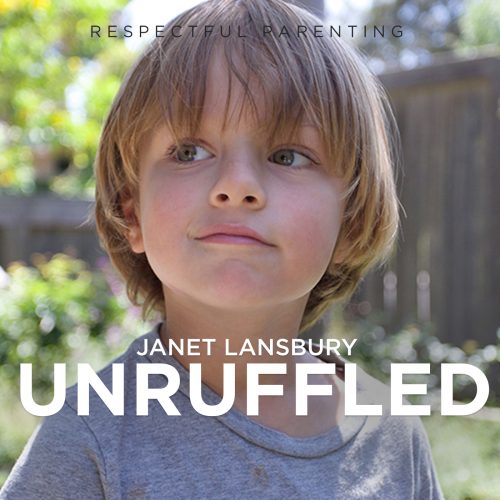
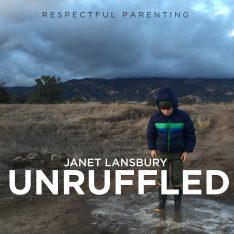
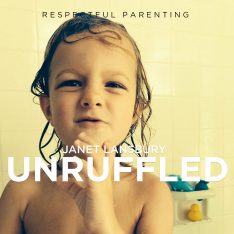
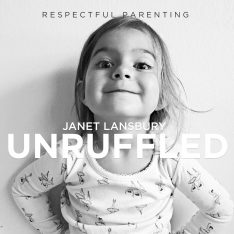

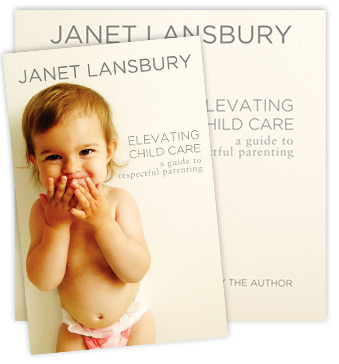

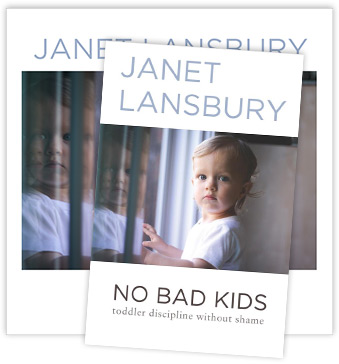



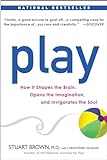
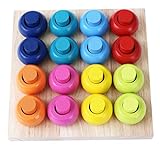
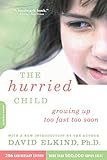
My four-year-old talks often about being mad or angry—in addition to genuine anger, it’s a favorite way of expressing discomfort or dysregulation. One night everything about bedtime made them angry: nightshirt, toothbrushing, potty, all of it got “NO, I’M MAD” and crossed arms and stomping, or “WANT TO HIT” and punching or kicking at the air (which we generally view as a sign of self-control and a considerable improvement over punching or kicking people, and have validated as a reasonable expression of anger that doesn’t hurt anyone).
I scooped them into my lap, where they sat very rigidly, and I said, “Today someone said a thing that hurt my feelings and I got SO ANGRY. I wanted to punch a wall. I was holding a glass and I wanted to break it. And it’s absolutely okay that I felt that way and it’s okay that you’re feeling this way. I didn’t punch the wall and I didn’t break the glass, because we can’t let our anger make us hurt anyone or harm anything. But I really wanted to, because I was so angry, and it’s okay to be so angry that you want to punch and want to kick. It’s okay to have those feelings inside you.”
My kid went from being tense and pulled in and wide awake to completely relaxed and almost asleep against me. It was clearly such a relief to hear that grown-ups feel these angry desires too! I was so glad we could share that moment of emotional honesty in a safe way.
I do cry in front of my child when I’m upset, though I stay in control of myself enough to talk about what I’m feeling and why—if I need to fall all the way apart, that happens privately, because seeing a parent do that can be scary. I also talk about having anxiety and depression, because with our family history we’re pretty sure our kid will have at least one of those (signs point to anxiety) and it’s good to establish early on that sometimes your brain tells you a story that’s not a true story, and you can use your senses to find out the truth or you can talk to someone you trust.
Today I said I was having brain stories about people getting sick, and I asked my kid what helps them when they have scary brain stories. They said “They’re POOP!” and giggled. So we laughed at our brain stories and called them rude names and said “Poo on you, brain stories!” and you know what, it was actually very reassuring! Sharing these experiences of having distressing feelings or thoughts can be so validating all around and leave everyone feeling better equipped to deal with them, as long as you approach it as a thing to connect over and a problem to solve together in an age-appropriate way.
Thank you so much for this podcast. Since the time I started to follow your blog and to work on building proper attitude towards children and changing old patterns that I had acquired during my childhood, I have been wondering what about my emotions. I always knew I don’t want to yell at my children but I wasn’t sure how to communicate my feelings and how to be authentic. I am so grateful for your work and posts, they help me to be a better mom, over and over again :)! I am a huge fan of RIE and I try to actively promote it in Poland 🙂
Janet,
I love your work. It has helped me so much as a parent. I am always looking for ways to be more patient and respectful for my son, and I had a question about “using our emotions to discipline our children”. I just was wondering what some examples would be because I want to make sure I’m not unconsciously doing this at times.
I sometimes say, ‘I need a minute’ if I’m getting anxious by a behavior and use headphones to listen to calming music before we talk/I acknowledge. I also tend to let my son overstep, and then get flustered while setting a boundary, though I’m doing it respectfully physically, I’m emotionally charged, and I know he picks up on it. I don’t want him to think that my anger is the precursor to a boundary that he doesn’t like, like if I need space to work on something.
I assure him it’s not his fault and that I had to rethink things, but I know it is confusing. I acknowledge his feelings too and understand why he feels that way. I just don’t want to make him feel that way at all. He asks for reassurance a lot, or if I’m happy. This pangs me! I do have high functioning anxiety/depression I am working on.
I know the goal is to set boundaries before I’m angered, but I’m still not 100 percent and sometimes if I’m not perfect at it I feel guilty and further charged that I’m a bad mom/less available. I thought maybe these things could be an example of me disciplining with my emotions. I’m just not sure! I know it’s not all in what you say but what you do as well.
This post was just what I needed.
Thank you so much for your time,
Kaci
Hi Kaci! Please know that this is about a process and what we’re heading towards, not perfection. To further your progress, I would ponder why you sometimes let your son overstep. What do you fear in setting a boundary earlier? It’s most helpful to recognize and make peace with the fears/concerns that are getting in our way. At the same time, repair is the most wonderful modeling. So, never doubt the power of making mistakes and making amends with your son. Take good care and be good to yourself! x Janet
Janet,
I have thought about my fear with setting boundaries early, and I think it stems from a fear of rejection, like if I tell my son no too much (or anyone for that matter) he will not like me/abandon me or that I’m being too rigid. I know this is so irrational about him abandoning me (he depends on me and I set the tone for our relationship, I know this!) It’s like my brain gets hijacked from my past.
I am thinking it must come from my mother modeling this people pleasing behavior but also from my mother’s reluctance to accept me fully, emotions and all. She used to say (when she was really frustrated with me) that I would be a bad mother due to my impatience. Many of my caregivers were emotionally available, and I think I have a hard time getting those negative voices out of my head when I feel like I’m not exceptional at every moment.
I had to be alone a lot with my feelings and thoughts, so it’s as though they got stuck on a loop. Then from there feelings of unworthiness cropped up. I write a lot to try to process but even as an adult I can’t shake this empty sort of lost feeling like part of my identity is wrong or misplaced.
Even though I feel this way, I understand the importance of changing this for my son, even if at times it’s like I’m going through the motions following your parenting advice. He’s six now, and I found you when he was 3 months old, so I know I’ve done a lot better trying and practicing at every chance I get. I understand how important it is to be in control of my emotions and to validate his feelings/let them be.
Thank you for your helpful insight as always!
Kaci